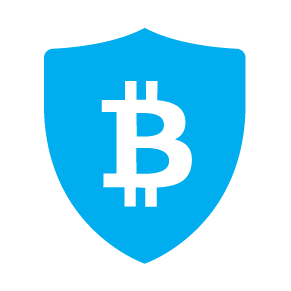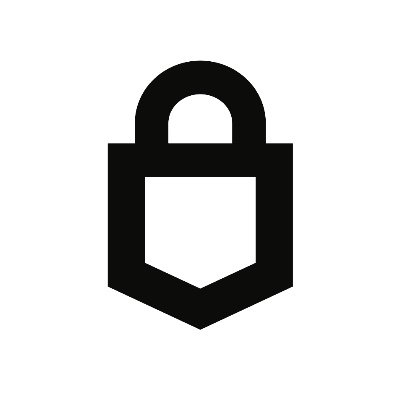|
83
- Bitcoin (BTC), Basic Attention Token (BAT), Tezos (XTZ), OmiseGO (OMG), Bitcoin Gold (BTG), Zcash (ZEC), Populous (PPT), DigixDAO (DGD), Zilliqa (ZIL), Aeternity (AE), Status (SNT), 0x (ZRX), Loopring (LRC), Aion (AION), Golem (GNT), Waltonchain (WTC), aelf (ELF), QASH (QASH), Mithril (MITH), FunFair (FUN), Nebulas (NAS), WAX (WAX), SALT (SALT), Power Ledger (POWR), Storm (STORM), Enigma (ENG), Storj (STORJ), TenX (PAY), Kin (KIN), Civic (CVC), Dent (DENT), Quantstamp (QSP), Gnosis (GNO), iExec RLC (RLC), Polymath (POLY), Loom Network (LOOM), Aragon (ANT), Enjin Coin (ENJ), Raiden Network Token (RDN), Metal (MTL), Pundi X (NPXS), Ignis (IGNIS), Gifto (GTO), AirSwap (AST), ETHLend (LEND), Quantum Resistant Ledger (QRL), AdEx (ADX), UTRUST (UTK), Crypterium (CRPT), AppCoins (APPC), USD Coin (USDC), Ripple (XRP), Bitcoin Cash (BCH), Dash (DASH), EOS (EOS), Ethereum (ETH), Litecoin (LTC), Stellar (XLM), Tether (USDT), Tron (TRX), Metronome (MET), Compound Dai (CDAI), Compound USD Coin (CUSDC), Compound Ether (CETH), Compound Basic Attention Token (CBAT), Compound 0x (CZRX), Compound Wrapped BTC (CWBTC), Compound Augur (CREP), Crypto.com Coin (CRO), Huobi Token (HT), Binance USD (BUSD), Celsius (CEL), FTX Token (FTT), Algorand (ALGO), TrueUSD (TUSD), Paxos Standard (PAX), Ocean Protocol (OCEAN), Celo (CELO), Hedera Hashgraph (HBAR), SwissBorg (CHSB), RSK Infrastructure Framework (RIF), Uquid Coin (UQC), Fantom (FTM)
|
154
- Bitcoin (BTC), Basic Attention Token (BAT), Tezos (XTZ), Ethereum Classic (ETC), OmiseGO (OMG), Qtum (QTUM), Verge (XVG), Lisk (LSK), Ontology (ONT), Bitcoin Gold (BTG), Bytom (BTM), Zcash (ZEC), Populous (PPT), Wanchain (WAN), Dogecoin (DOGE), Bitcoin Private (BTCP), DigixDAO (DGD), Decred (DCR), RChain (RHOC), Aeternity (AE), Status (SNT), Loopring (LRC), Komodo (KMD), Aion (AION), Golem (GNT), IOST (IOST), DigiByte (DGB), Waltonchain (WTC), aelf (ELF), Centrality (CENNZ), Dragonchain (DRGN), Substratum (SUB), QASH (QASH), Veritaseum (VERI), MonaCoin (MONA), Syscoin (SYS), FunFair (FUN), Nebulas (NAS), Nucleus Vision (NCASH), Revain (REV), WAX (WAX), SALT (SALT), MaidSafeCoin (MAID), Power Ledger (POWR), Zcoin (XZC), Storm (STORM), Enigma (ENG), Storj (STORJ), TenX (PAY), Cindicator (CND), Dentacoin (DCN), Particl (PART), Kin (KIN), Civic (CVC), Iconomi (ICN), SmartCash (SMART), SingularityNET (AGI), POA Network (POA), GameCredits (GAME), Dent (DENT), Vertcoin (VTC), Quantstamp (QSP), Gnosis (GNO), iExec RLC (RLC), Decentraland (MANA), Polymath (POLY), Cube (CUBEAUTO), Ubiq (UBQ), Po.et (POE), Loom Network (LOOM), NULS (NULS), Enjin Coin (ENJ), High Performance Blockchain (HPB), Raiden Network Token (RDN), Metal (MTL), Santiment Network Token (SAN), Pundi X (NPXS), Bitcore (BTX), SIRIN LABS Token (SRN), Bluzelle (BLZ), Genesis Vision (GVT), Pillar (PLR), Gifto (GTO), PayPie (PPP), BLOCKv (VEE), Bibox Token (BIX), OST (OST), ETHLend (LEND), IoT Chain (ITC), DATA (DTA), Ripio Credit Network (RCN), SONM (SNM), Quantum Resistant Ledger (QRL), AdEx (ADX), SingularDTV (SNGLS), Eidoo (EDO), UTRUST (UTK), Groestlcoin (GRS), Edgeless (EDG), WePower (WPR), SpankChain (SPANK), CRYPTO20 (C20), Peercoin (PPC), Crypterium (CRPT), Oyster Pearl (PRL), Feathercoin (FTC), AppCoins (APPC), USD Coin (USDC), Ripple (XRP), Binance Coin (BNB), Bitcoin Cash (BCH), Cardano (ADA), Dash (DASH), EOS (EOS), Ethereum (ETH), Litecoin (LTC), Monero (XMR), NEM (XEM), Stellar (XLM), Tether (USDT), Polkadot (DOT), Matic Network (MATIC), Ampleforth (AMPL), xDai (STAKE), Nectar (NEC), Zap (ZAP), Monolith (TKN), Metronome (MET), YAM v1 (YAM), Auctus (AUC), pTokens BTC (PBTC), Compound Ether (CETH), PieDAO BTC++ (BTC++), Compound Basic Attention Token (CBAT), Compound 0x (CZRX), Compound Wrapped BTC (CWBTC), Compound Augur (CREP), Huobi Token (HT), Binance USD (BUSD), NEAR Protocol (NEAR), TrueUSD (TUSD), HUSD (HUSD), Paxos Standard (PAX), Ocean Protocol (OCEAN), Celo (CELO), Energy Web Token (EWT), Quant (QNT), SwissBorg (CHSB), IoTeX (IOTX), RSK Infrastructure Framework (RIF), TomoChain (TOMO), Uquid Coin (UQC), Unibright (UBT), Fantom (FTM)
|
| Sobre |
BitGo es una de las carteras de criptomonedas más antiguas, lanzada en 2013. Muchos usuarios afirman que esta es una de las billeteras BTC más confiables del mercado. Tanto desktope como las versiones móviles de la billetera están disponibles. La versión móvil está disponible tanto para Android como para IOS.
|
Trezor es un dispositivo sin conexión utilizado para almacenar claves privadas criptográficas. Trezor es una de las principales carteras de hardware seguras y funciona en Windows 8+, macOS, Android y Linux. Se conecta a un puerto USB de su computadora a través de un cable.
|
| Fecha de creación |
Fecha de creación
2013
|
Fecha de creación
2013
|
| País |
País
USA
|
País
International
|
| Idiomas |
Idiomas
English
|
Idiomas
English, Japanese, Portuguese, German, French, Spanish, Greek, Russian, Traditional Chinese, Simplified Chinese, Dutch, Indonesian, Polish, Czech, Ukrainian, Bengali
|
| Tipo de cartera |
Tipo de cartera
Software wallet
|
Tipo de cartera
Hardware wallet
|
| Tipo de almacenamiento |
Tipo de almacenamiento
Hot / Cold wallet
|
Tipo de almacenamiento
Cold wallet
|
| Claves privadas |
Claves privadas
Disponible
|
Claves privadas
Disponible
|
| Monedas disponibles |
Monedas disponibles
83
- Bitcoin (BTC), Basic Attention Token (BAT), Tezos (XTZ), OmiseGO (OMG), Bitcoin Gold (BTG), Zcash (ZEC), Populous (PPT), DigixDAO (DGD), Zilliqa (ZIL), Aeternity (AE), Status (SNT), 0x (ZRX), Loopring (LRC), Aion (AION), Golem (GNT), Waltonchain (WTC), aelf (ELF), QASH (QASH), Mithril (MITH), FunFair (FUN), Nebulas (NAS), WAX (WAX), SALT (SALT), Power Ledger (POWR), Storm (STORM), Enigma (ENG), Storj (STORJ), TenX (PAY), Kin (KIN), Civic (CVC), Dent (DENT), Quantstamp (QSP), Gnosis (GNO), iExec RLC (RLC), Polymath (POLY), Loom Network (LOOM), Aragon (ANT), Enjin Coin (ENJ), Raiden Network Token (RDN), Metal (MTL), Pundi X (NPXS), Ignis (IGNIS), Gifto (GTO), AirSwap (AST), ETHLend (LEND), Quantum Resistant Ledger (QRL), AdEx (ADX), UTRUST (UTK), Crypterium (CRPT), AppCoins (APPC), USD Coin (USDC), Ripple (XRP), Bitcoin Cash (BCH), Dash (DASH), EOS (EOS), Ethereum (ETH), Litecoin (LTC), Stellar (XLM), Tether (USDT), Tron (TRX), Metronome (MET), Compound Dai (CDAI), Compound USD Coin (CUSDC), Compound Ether (CETH), Compound Basic Attention Token (CBAT), Compound 0x (CZRX), Compound Wrapped BTC (CWBTC), Compound Augur (CREP), Crypto.com Coin (CRO), Huobi Token (HT), Binance USD (BUSD), Celsius (CEL), FTX Token (FTT), Algorand (ALGO), TrueUSD (TUSD), Paxos Standard (PAX), Ocean Protocol (OCEAN), Celo (CELO), Hedera Hashgraph (HBAR), SwissBorg (CHSB), RSK Infrastructure Framework (RIF), Uquid Coin (UQC), Fantom (FTM)
|
Monedas disponibles
154
- Bitcoin (BTC), Basic Attention Token (BAT), Tezos (XTZ), Ethereum Classic (ETC), OmiseGO (OMG), Qtum (QTUM), Verge (XVG), Lisk (LSK), Ontology (ONT), Bitcoin Gold (BTG), Bytom (BTM), Zcash (ZEC), Populous (PPT), Wanchain (WAN), Dogecoin (DOGE), Bitcoin Private (BTCP), DigixDAO (DGD), Decred (DCR), RChain (RHOC), Aeternity (AE), Status (SNT), Loopring (LRC), Komodo (KMD), Aion (AION), Golem (GNT), IOST (IOST), DigiByte (DGB), Waltonchain (WTC), aelf (ELF), Centrality (CENNZ), Dragonchain (DRGN), Substratum (SUB), QASH (QASH), Veritaseum (VERI), MonaCoin (MONA), Syscoin (SYS), FunFair (FUN), Nebulas (NAS), Nucleus Vision (NCASH), Revain (REV), WAX (WAX), SALT (SALT), MaidSafeCoin (MAID), Power Ledger (POWR), Zcoin (XZC), Storm (STORM), Enigma (ENG), Storj (STORJ), TenX (PAY), Cindicator (CND), Dentacoin (DCN), Particl (PART), Kin (KIN), Civic (CVC), Iconomi (ICN), SmartCash (SMART), SingularityNET (AGI), POA Network (POA), GameCredits (GAME), Dent (DENT), Vertcoin (VTC), Quantstamp (QSP), Gnosis (GNO), iExec RLC (RLC), Decentraland (MANA), Polymath (POLY), Cube (CUBEAUTO), Ubiq (UBQ), Po.et (POE), Loom Network (LOOM), NULS (NULS), Enjin Coin (ENJ), High Performance Blockchain (HPB), Raiden Network Token (RDN), Metal (MTL), Santiment Network Token (SAN), Pundi X (NPXS), Bitcore (BTX), SIRIN LABS Token (SRN), Bluzelle (BLZ), Genesis Vision (GVT), Pillar (PLR), Gifto (GTO), PayPie (PPP), BLOCKv (VEE), Bibox Token (BIX), OST (OST), ETHLend (LEND), IoT Chain (ITC), DATA (DTA), Ripio Credit Network (RCN), SONM (SNM), Quantum Resistant Ledger (QRL), AdEx (ADX), SingularDTV (SNGLS), Eidoo (EDO), UTRUST (UTK), Groestlcoin (GRS), Edgeless (EDG), WePower (WPR), SpankChain (SPANK), CRYPTO20 (C20), Peercoin (PPC), Crypterium (CRPT), Oyster Pearl (PRL), Feathercoin (FTC), AppCoins (APPC), USD Coin (USDC), Ripple (XRP), Binance Coin (BNB), Bitcoin Cash (BCH), Cardano (ADA), Dash (DASH), EOS (EOS), Ethereum (ETH), Litecoin (LTC), Monero (XMR), NEM (XEM), Stellar (XLM), Tether (USDT), Polkadot (DOT), Matic Network (MATIC), Ampleforth (AMPL), xDai (STAKE), Nectar (NEC), Zap (ZAP), Monolith (TKN), Metronome (MET), YAM v1 (YAM), Auctus (AUC), pTokens BTC (PBTC), Compound Ether (CETH), PieDAO BTC++ (BTC++), Compound Basic Attention Token (CBAT), Compound 0x (CZRX), Compound Wrapped BTC (CWBTC), Compound Augur (CREP), Huobi Token (HT), Binance USD (BUSD), NEAR Protocol (NEAR), TrueUSD (TUSD), HUSD (HUSD), Paxos Standard (PAX), Ocean Protocol (OCEAN), Celo (CELO), Energy Web Token (EWT), Quant (QNT), SwissBorg (CHSB), IoTeX (IOTX), RSK Infrastructure Framework (RIF), TomoChain (TOMO), Uquid Coin (UQC), Unibright (UBT), Fantom (FTM)
|
| Seguridad |
Seguridad
Sin datos
|
Seguridad
Personal
|
| Anonimato |
Anonimato
Sin datos
|
Anonimato
High
|
| Facilidad de uso |
Facilidad de uso
Sin datos
|
Facilidad de uso
Average
|
| Tiene tarjeta adjunta |
Tiene tarjeta adjunta
Sin datos
|
Tiene tarjeta adjunta
no
|
| Tiene instalaciones comerciales |
Tiene instalaciones comerciales
Sin datos
|
Tiene instalaciones comerciales
Sin datos
|
| Tiene cupones y ofertas. |
Tiene cupones y ofertas.
Sin datos
|
Tiene cupones y ofertas.
Sin datos
|
| Caracteristicas |
Caracteristicas
Sin datos
|
Caracteristicas
Open Source, 2 Factor Authentication
|

